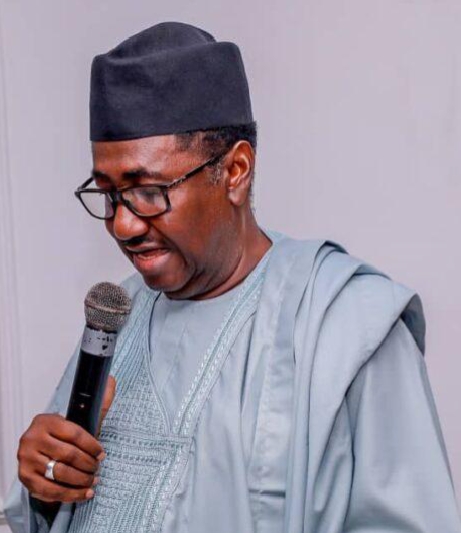Beyond the Headlines: Understanding the Roots of Nigeria’s Insecurity Crisis. By Eugene Nanven

Beyond the Headlines: Understanding the Roots of Nigeria’s Insecurity Crisis
In Nigeria, insecurity has transformed from occasional disturbances into a relentless crisis that affects nearly every area of life. From armed banditry and terrorism to kidnapping and communal conflicts, the nation faces a range of interwoven security challenges. Despite government efforts and military action, these issues continue unabated. The pressing question remains: what are the core causes of Nigeria’s insecurity, and how can an in-depth understanding of these roots guide us toward a sustainable solution?
To grasp the scope of Nigeria’s security crisis, one must recognize its historical foundation. Nigeria’s colonial past left behind borders that disregarded ethnic, religious, and political identities, creating a state built on division. This artificial structure bred distrust among groups that had coexisted independently before, and successive governments have failed to heal these divisions. Instead of building a cohesive nation, Nigeria inherited a fractured system, one that, to this day, hinders effective governance. As a result, modern Nigerian administrations have often struggled with legitimacy, relying on a centralized government that remains disconnected from the local needs and realities of its people.
This structural disconnect has led to deep distrust between the government and the public. Corruption and bureaucratic inefficiencies have fueled this divide, particularly in marginalized communities that feel neglected or exploited. The state, rather than representing the collective good, has become, in the eyes of many, a tool of exploitation, especially as those in power continue to benefit while many are left without access to essential services and opportunities. This gap creates fertile ground for insecurity, particularly as frustrated individuals in economically deprived areas are more likely to align with insurgent or criminal activities.

Economic inequality is another primary driver of insecurity in Nigeria. Large portions of the population live in poverty, with limited access to education, healthcare, or jobs. High unemployment, particularly among the youth, leaves many vulnerable to the lure of crime or insurgency, as they see few other avenues to improve their lives. When legitimate opportunities are absent, some individuals feel compelled to turn to illicit activities or join insurgent groups that promise an alternative means of survival.
Nigeria’s economic structure compounds these inequalities, with wealth concentrated in the hands of a few while the majority struggle to get by. This unequal distribution fuels resentment and fosters the perception that the state serves only the elite. This disparity further alienates people from the state, and when citizens feel neglected, they are more likely to support violent or criminal actions as a form of protest or simply to survive.
Political corruption has also played a significant role in exacerbating insecurity. Corruption is ingrained within Nigeria’s political system, where it shapes policy decisions and undermines public institutions. Political leaders frequently misuse public funds for personal gain, depriving crucial sectors such as security, education, and healthcare of essential resources. Law enforcement agencies are often underequipped and poorly compensated, reducing their effectiveness in tackling crime and insurgency. The Nigerian government, through systemic corruption and neglect, has undermined its own security capacity.

Adding to these challenges is the weakness of Nigeria’s security leadership, whose responses are often marked by delay and inefficiency. When crises arise, citizens have learned that calling for emergency assistance rarely results in a timely response. More often than not, security forces only arrive long after incidents have unfolded, when the perpetrators have already fled and the damage is done. This lack of prompt action has eroded public trust in the security apparatus, fostering a sense of abandonment and helplessness in communities that feel left to fend for themselves. This persistent delay in response reinforces the belief that the state is neither prepared nor willing to protect its citizens, further fueling insecurity.
A lack of accountability further exacerbates the issue. When officials engage in corrupt practices without facing consequences, public trust erodes, and the state loses its moral authority. People begin to view the government as self-serving, which promote resentment and encourages distrust in security forces. Furthermore, the absence of consequences for high-profile corruption cases establishes a culture where misconduct is widely accepted, normalizing corruption at all levels of society.
Ethnic and religious diversity, once one of Nigeria’s greatest assets, has become a source of division under leaders who exploit these differences for political advantage. By fanning the flames of ethnic and religious tension, successive administrations have created a fragmented society. Communities increasingly view one another with suspicion, seeing their neighbors as adversaries rather than allies. Extremist groups such as Boko Haram and ISWAP capitalize on these divisions, recruiting individuals from marginalized communities who feel abandoned by the state. These groups manipulate identity politics, promising a sense of belonging and purpose to those who feel alienated by society.
Another dimension of Nigeria’s insecurity problem is the widespread availability of small arms, facilitated by weak border control and ineffective regulation. Nigeria’s porous borders allow for easy smuggling of weapons that fuel insurgency, banditry, and communal violence. The state’s failure to strengthen border security has allowed firearms to circulate freely, emboldening criminal groups and transforming local conflicts into widespread violence. This unrestricted access to arms intensifies insecurity and creates a culture where violence becomes normalized, trapping civilians in a cycle of conflict.
Environmental factors also play a critical role in Nigeria’s insecurity crisis. Climate change has intensified desertification, reducing arable land in the northern regions and forcing herders to move southward in search of pasture. This migration has fueled violent clashes between herders and farmers over land and water resources. The government’s failure to implement effective policies for conflict resolution and resource management has left communities vulnerable to escalating tensions. Without meaningful intervention, these conflicts are likely to persist.
Addressing Nigeria’s insecurity crisis requires a holistic approach that goes beyond simply responding to immediate threats. Economic reforms that reduce inequality, create employment opportunities, and promote inclusive growth are essential to breaking the cycle of insecurity. Combating corruption must become a national priority, with leaders held accountable for misconduct. Strengthening public trust requires that the government commit to rooting out corruption, sending a clear message that illegal practices will no longer be tolerated.
The government must also work with community leaders to bridge ethnic and religious divides, fostering dialogue and reconciliation. Investments in border security, surveillance, and intelligence infrastructure are necessary to control the flow of arms and secure the nation’s borders. Additionally, proactive policies to address climate change and resource management are essential to easing tensions between communities and preventing future conflicts.
While the government bears the primary responsibility for addressing insecurity, Nigerian citizens also have a role to play. The public must foster a culture of accountability, rejecting corruption and demanding integrity from their leaders. By working together, communities can help promote peace and security, recognizing that stability is a shared responsibility.
In conclusion, Nigeria’s insecurity crisis is complex, rooted in a range of historical, economic, political, social, and environmental factors. Successive administrations have played a significant role in perpetuating these issues, either through neglect or active exploitation of societal divisions. However, only through a comprehensive approach that addresses these root causes can Nigeria hope to overcome its insecurity crisis. The journey to stability may be long, but with a commitment to change and transformative policies, Nigeria can work toward a future where security is not a privilege for a few but a shared reality for all.
Eugene Nanven Writes from Gwagwalada Abuja FCT Nigeria




